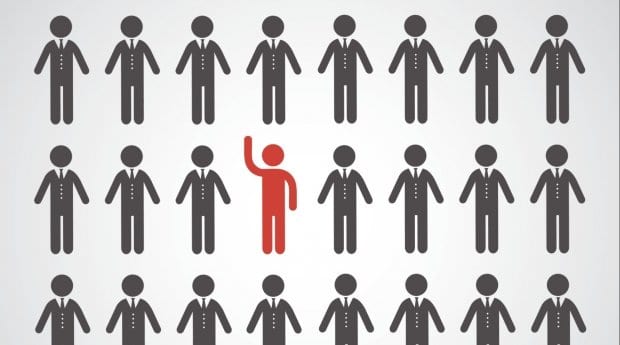In a program that aims to support people who demonstrate “extraordinary originality and dedication in their creative pursuits and a marked capacity for self-direction,” a graphic novelist and a civil rights lawyer can be equally acknowledged for demonstrating promise within their chosen fields, alongside engineers, mathematicians, poets, social justice organizers and other passionately committed individuals.
Though they used different tools, Alison Bechdel and Mary Bonauto have each made significant contributions to the positive recognition of LGBT folks in American (and global) society — they now number among the historical few awarded $625,000 (up from previous years’ sum of $500,000) to “exercise their own creative instincts for the benefit of human society.”
With roots in the alternative press of the 1980s, Bechdel has been chronicling life outside heteronormativity through the decades, drawing on her own experiences to create a lively and provocative cast that resembled people not seen in or portrayed negatively in the mainstream. Widely known for producing 25 years of the highly successful comic strip Dykes to Watch Out For, Bechdel has developed as a serious force in illustrative literature.
Her spotlight expanded when her renowned “family tragicomic” Fun Home was named Time magazine’s 2010 Book of the Year, and the artist has since released another autobiographical treatment, Are You My Mother? A Comic Drama, to rave reviews. The MacArthur Foundation describes her work as “striking for its conceptual depth and complexity in structure as well as for the deft use of allusion and reference.” Next year, the theatrical adaptation of Fun Home will hit Broadway, after narrowly missing winning the 2014 Pulitzer Prize for Drama.
“If you have spent a long time resisting the status quo — whether it’s in art, society, or the political world — what happens when that status quo at last gives way?” Bechdel asked readers as guest editor of Best American Comics 2011. “A universe of possibility opens up.”
While Bechdel was illustrating her characters’ struggle for happiness in an era plagued by Reaganism, wars for oil, corporate expansion, environmental destruction, Y2K anxiety and the “post-9/11 world,” Bonauto took on the challenge of fighting for their real-life analogues within the American legal system.
Since 1990, Bonauto has been the Civil Rights Project director at Gay & Lesbian Advocates & Defenders (GLAD) and as such has had a hand in the country’s most norm-shattering marriage-equality trials.
Taking the stance that “separate but equal” civil union legislation entrenched gay couples as second-class, Bonauto played an instrumental role in Goodridge v Department of Public Health. The ruling in the case led to the first successful bid for full civil marriage between two men or two women in the Commonwealth of Massachusetts. “The decision and its courage caused people to rally behind its core principles of dignity, liberty and equality for all people,” Bonauto said recently in a lecture marking 10 years since the landmark decision, “even in the context of marriage.”
Bonauto, who once told The Advocate that there was “too much focus on the lawyers and not enough on the real people,” remains humble since receiving the nod from the MacArthur Foundation. “This movement has involved so many people for so many decades,” she says in a foundation-produced video. “I feel a completely inadequate stand-in for all of those millions of people, for everything they have done.”
While they are not the only members of the not-so-straight set to have been given the colloquially termed “genius grant,” the selection of Bonauto and Bechdel for such a widely esteemed award arguably represents a significant shift in the social acknowledgment of queer experience as legitimate.

 Why you can trust Xtra
Why you can trust Xtra


